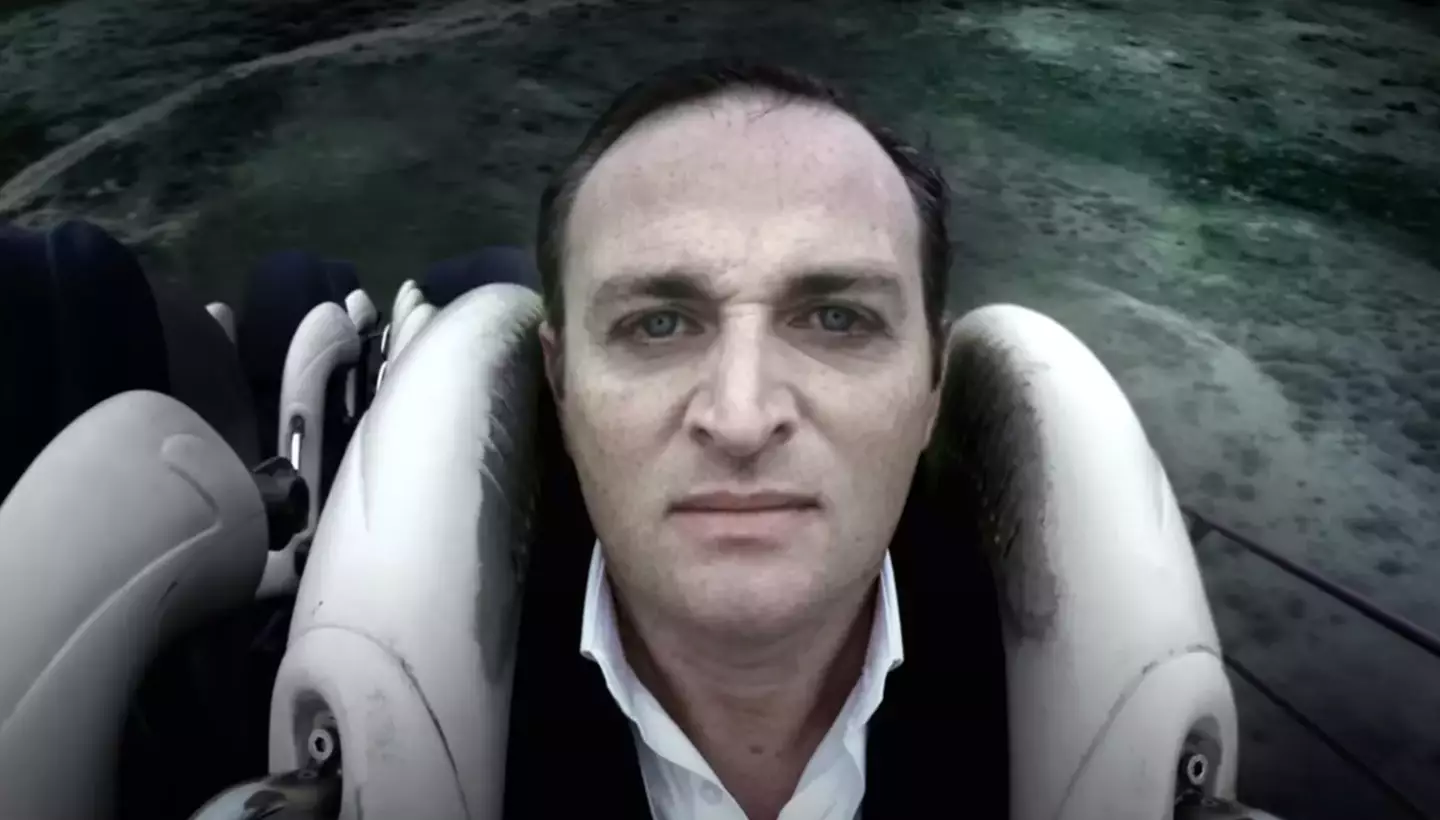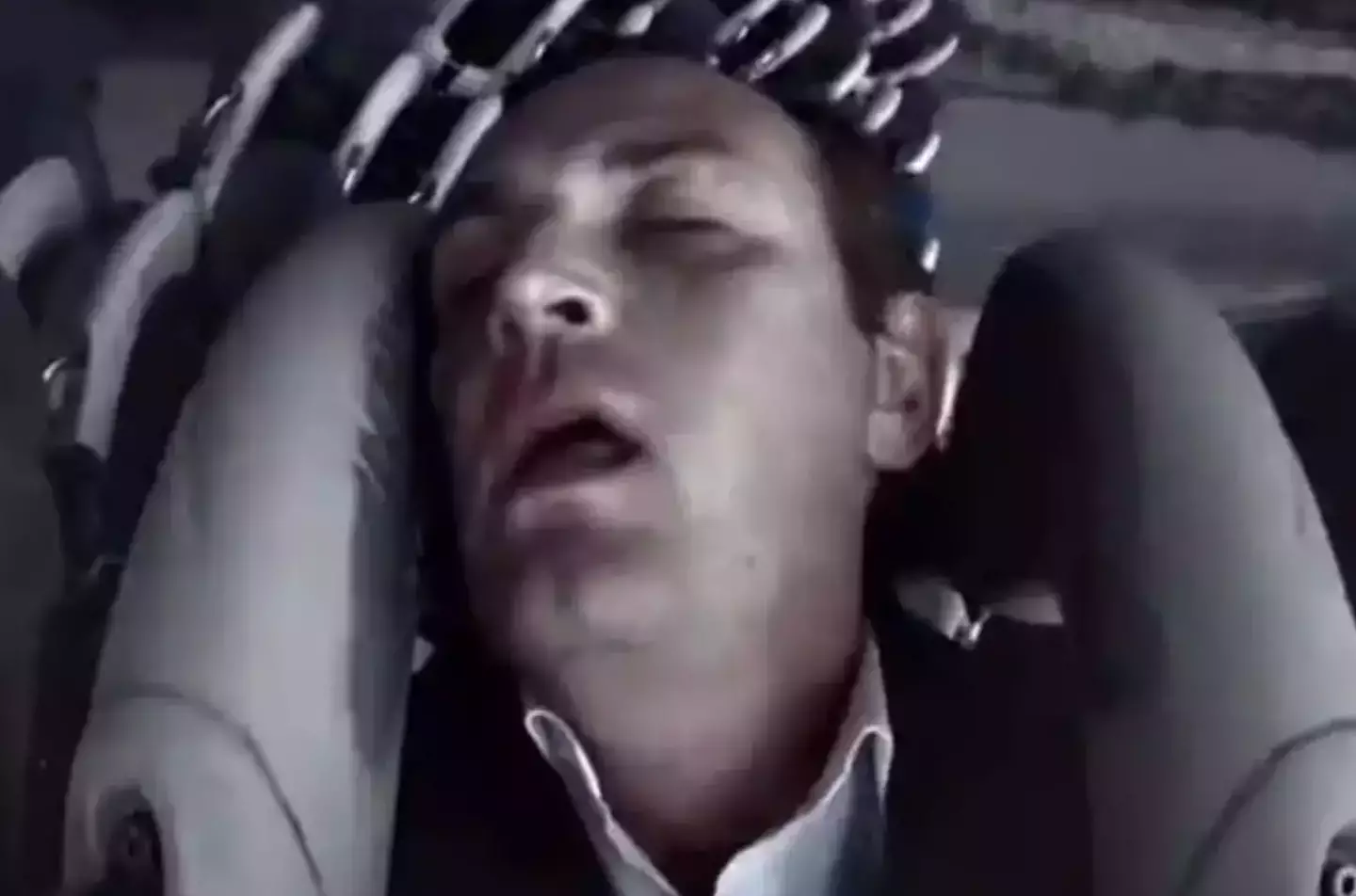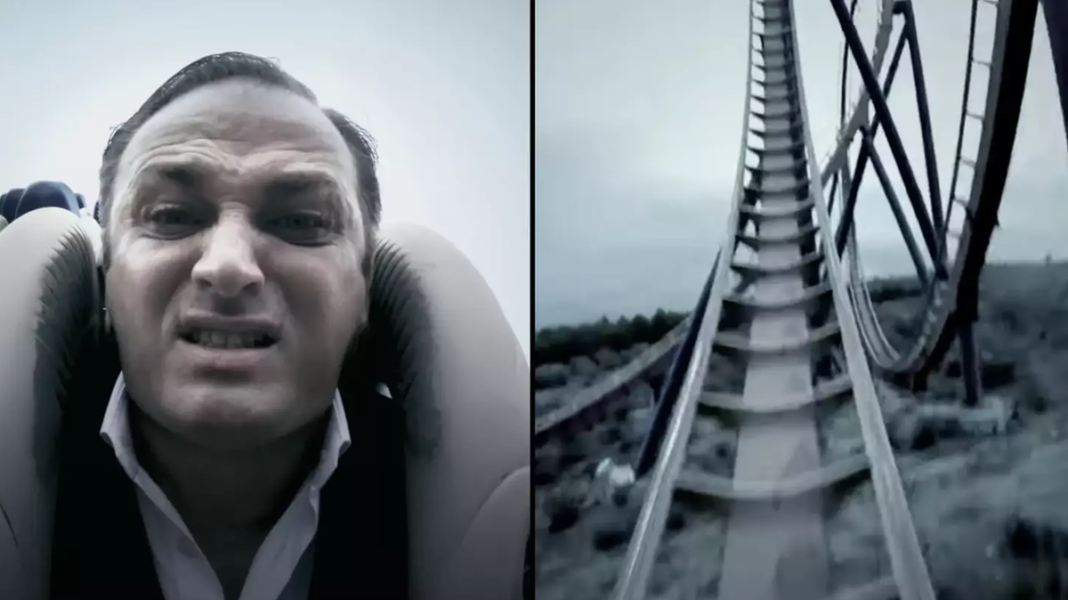The man behind the infamous euthanasia rollercoaster has revealed the disturbing reason why he designed it.
Julijonas Urbonas is a Lithuanian engineer who came up with the first-of-its-kind design that kills anyone who chooses to ride it.
It was called a ‘hypothetical death machine’, with the idea first coming into Urbonas’ head in 2010 while he was doing his PhD, with the engineer working at a theme park when he was younger.
In theory, the rollercoaster would reach top speeds of 223 mph, faster than most supercars, while taking riders on a 1,600-ft trip.
It would include several loops and reach a G-force of 10 – here’s how it would look:
The idea, as horrifying as it sounds, resulted in Urbonas being awarded the Public Prize of New Technological Art of Update 2013.
Luckily, the project is not a real-life rollercoaster, instead serving as an idea thought up by Urbonas for a ‘painless’ death.
Essentially, the rollercoaster was made to kill riders in a thrilling yet painless experience that means that they pass away on a high.
Even though we’ll likely never see it, the amount of detail and planning that went into the design is enough to give us an idea of how it would work.

The rollercoaster was called a ‘hypothetical death machine’ (YouTube/Glenn Paton)
Urbonas, a former PhD candidate at the Royal College of Art, London, explained that the idea could, more morbidly, help to thin the population of people on Earth.
It’s a dark answer, but he said that riders would be voluntary, though the height would make people think twice before making the decision.
To make sure that the riders are certain, the seats will also have a button for the ride to push to start the 1,600-ft drop.
The engineer said that this method would make ‘humane’ voluntary death could be more meaningful, personal, ritualistic’.
Urbonas added that putting the riders ‘close to… terminal velocity’ before stopping the ride and having them ‘supported on an air pillow’ before the loops would make breaking more difficult and exert pressure on their organs.

The loops would kill you after you black out a couple of times (YouTube/Glenn Paton)
Each loop would intensify the pooling of blood in the lower extremities, decreasing oxygenated blood in the brain.
You would likely regain consciousness once or twice, with the remaining loops being described as ‘insurance’.
The ride, with five or six loops, numbs your body and eventually ends your life through oxygen deprivation in your brain.
Urbonas also joked about his method: “In a few words, humour here eases, facilitates the stressful debate, but also proposes the ritual of death could be merrier.”
If you’ve been affected by any of these issues and want to speak to someone in confidence, please don’t suffer alone. Call Samaritans for free on their anonymous 24-hour phone line on 116 123.






